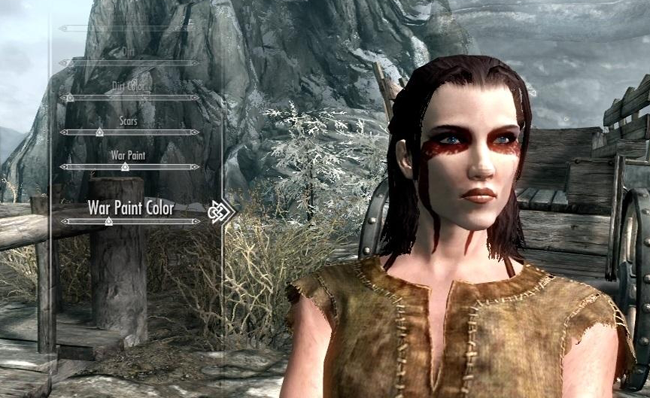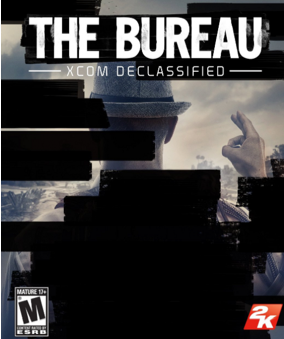I’ve been busy lately, moving and working, and because of that, I haven’t had much time to play. So instead of sitting down to something longer, I’ve been trying out free-to-play games on Steam, playing two new releases in the last week and poking at a few others. The first, The Average Everyday Adventures of Samantha Browne, is a simple, short game about making oatmeal. Yep, that’s it, just oatmeal — except as Samantha Browne, the player is forced to navigate social anxiety so severe that facing the communal kitchen in her dorm is a Herculean task. I won’t say this is game of the year or anything, but the art is attractive and I appreciate the little visual touches (like a wavering hallway) that help communicate Samantha’s state of mind. This is a message game, but packaged in such a way that it becomes an experience.
The second, Lucid9: Inciting Incident, is a visual novel about a murderer, maybe; the player starts with an ending that isn’t quite inevitable, depending on how you navigate the story when it rolls back to the real beginning. An interesting concept, but for me, at least, rather overwrought and predictable. My partner sat with me while I clicked through the first few chapters, and a handful of screens in, we’d predicted most of the plot. Of course, I’ve taken so many creative writing classes — and taught them as well — that I’m rarely surprised any longer by “shocking” stories, but this very much felt like a familiar path through a familiar forest. Still, the reviews are positive, so this clearly has an audience; I’m glad they’re enjoying it.
This got me thinking: what do we expect, when we play a free game? When I first loaded Samantha Browne, the reviews were overwhelmingly negative. The game was dumb. It was buggy. It was all about future cat ladies. Conversely, as I said, Lucid9 has quite the audience, with over a hundred reviews praising the story, the characters, the plot.
 We know free games probably won’t be perfect, that maybe they’re a test for a bigger idea, or a later game, or maybe it’s a labor of love from a small team working in fits and starts. Maybe we can expect some free games to be just platforms for microtransactions and add-ons. As for me, I expect good story, characters, and plot from a visual novel (well, I hope to, anyway); I don’t necessarily expect a free-to-play game, especially one just released, to be bug-free, and I don’t expect any game to appeal to everyone. But that’s how it felt when I read the reviews of Samantha Browne, like the reviewers shading the experience wanted something that would appeal to them, or at least more choices so it could appeal to them. How silly, I thought; it’s free, so why complain? Just turn it off.
We know free games probably won’t be perfect, that maybe they’re a test for a bigger idea, or a later game, or maybe it’s a labor of love from a small team working in fits and starts. Maybe we can expect some free games to be just platforms for microtransactions and add-ons. As for me, I expect good story, characters, and plot from a visual novel (well, I hope to, anyway); I don’t necessarily expect a free-to-play game, especially one just released, to be bug-free, and I don’t expect any game to appeal to everyone. But that’s how it felt when I read the reviews of Samantha Browne, like the reviewers shading the experience wanted something that would appeal to them, or at least more choices so it could appeal to them. How silly, I thought; it’s free, so why complain? Just turn it off.
And then a few days later, I did the same thing with Lucid9, clicking through screens and scoffing at the narration. How dare this game not appeal to me, basically. How dare it. The nerve. Once I realized what I was doing, I felt a little silly. I turned it off (and watched videos of the endings, to verify my predictions; I like knowledge). But not being one to just let things go, I kept asking myself why I’d fallen into that trap I’d noticed with Samantha Browne. Why did I care so much if a free game didn’t appeal to me? I’ve played a number of free and cheap games on my phone, especially games with microtransactions; many were buggy, crashing periodically, with other problems, like typos (the horror). But they’ve all brought something for me, even if it’s just a new twist on match-three games, or a wacky new take on Dots and Boxes. So that’s it for me: I like games that experiment, that try something new, even if it’s a small something, and free games are often a great place to try something, to test out a concept to see if it works, or to develop a message-centric game, just to get it out there (just as with this blog post).
Lucid9, for me, felt like a dozen animes I’d started and never finished. Flirty best friend, check; haughty smart girl, check; misfit main character, check; girl with a crush who is treated like a sister, check. Where was the new? Where was the experiment? It wasn’t there for me, so I wasn’t the audience, free game or not. But for the fans leaving rave reviews, it offers something. Could it be familiarity? Could the thing I disliked be precisely what others loved?
This of course ties to other, larger issues, like the debate over who should be represented in games, and how, and why, and even that is a game and what isn’t. We agree with the arguments that appeal most to what we want in games; we spurn those that don’t. I like Depression Quest because I think it’s a great use of Twine and helps to demonstrate something that’s often hard to explain, namely, the notion that someone who is struggling with depression simply cannot undertake the “best” actions. But for others, it’s not even a game. Nothing about it appeals, so it’s rejected, the way I rejected Lucid9. But the conventions of Lucid9 that don’t appeal to me do appeal to others, because it’s positioned well within the conventions of its particular niche.
We all spend a lot of time talking about reviews, about what should be included and what shouldn’t, about the purpose of a review, and about audience and for me, at least, the question of reviews often comes back to the notion of objectivity. I would review Lucid9 poorly. I’d give Samantha Browne a higher score (for what it is). I could cite facts—art, narrative, dialogue, character. But are they facts? Or are these things I see as “facts” simply an outgrowth of my values, the things I privilege?
Is Bayonetta empowered or sexualized? Is Dragon’s Crown what it should be or not? Is Rust a fascinating experiment in the accidents of birth, or just a way to force identity politics down everyone’s throats?
Neither of the games I tried crashed on me. I experienced no bugs. But that information isn’t enough, not for me. To review a game, to talk about it, I have to talk about its essence — and how that resonates with me. You, reader, are not me (that’s probably better for you). Of course, I could transcend that, saying merely that Lucid9 is reminiscent of anime, that the story is a good value due to its sheer length. But is that a review? Would someone who feels the same about free-to-play games, and really any, benefit from such a review? Does it tell them anything? Is there an unbiased way to say that I think the writing is overwrought?
No. Even when staying within the realm of the genre, and evaluating Lucid9 on how it fits into its market, my own real opinions would shine through somewhere. And really, I think that’s okay. That, to me, is a review. It’s the chance to see something how I saw it, and how I evaluated it, and you can take that as you will.





2 thoughts on “What Do We Want From Free Games—and Game Reviews?”
I always prefer criticism that owns and acknowledges it’s own subjectivity to anything that pretends at objectivity. Personally, when reviewing, I try to say who a given game (etc.) is for – who I think will appreciate it, even if I didn’t, and who should steer clear, even if I loved it.
Quantitative aggregations of reviews (“overall” ratings on Steam, star ratings on app stores, Metacritic) are good for evaluating functionality: does it run? does it crash? …but nearly useless as criticism. My favorite games almost never get universal plaudits.
Likewise to your first paragraph. None of us can ever be objective enough to warrant the use of the word, and I steer clear of anyone who pretends otherwise. At the same time, I need to know ‘why’, specifically, for you, the game didn’t work – in essay form or not, I have to understand where you’re coming from, else there’s no grounding for the criticism in the first place.
A lot of people, myself included, follow specific reviewers for…well, any number of reasons, really, but I feel like one of them is that over time you really understand their biases, and how they might mesh with your own. And once you reach that point, you can see…understand? Correlate? Something happens where you can make educated guesses for yourself based on what someone else is saying. I can think of a few cases where a game was reviewed poorly, but the reasons why only made me want to buy it more.
(Words are hard tonight, I apologize if this isn’t making sense.)